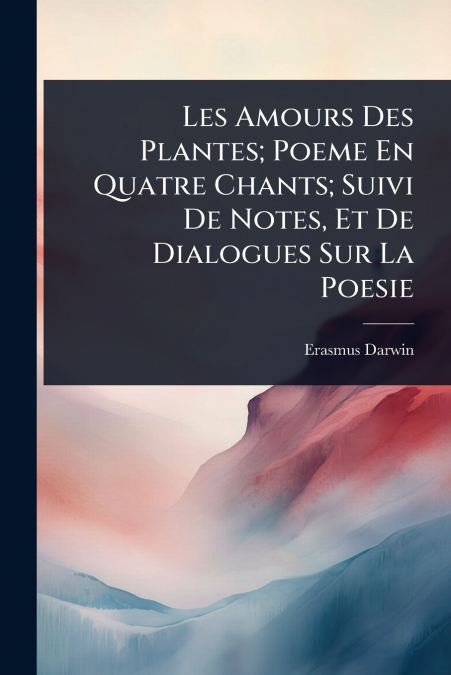
Erasmus Darwin
Les Amours Des Plantes is a poetic exploration of botany by Erasmus Darwin, presented in four cantos and supplemented with extensive notes and dialogues on poetry. Originally published in English as part of his larger work, 'The Botanic Garden,' this French edition offers a unique perspective on Darwin’s synthesis of scientific observation and poetic expression. Darwin masterfully personifies plants, attributing to them human-like emotions and behaviors to illustrate the processes of pollination and reproduction. This approach not only makes scientific concepts accessible but also transforms the garden into a stage for dramatic and amorous encounters. The accompanying notes provide deeper scientific insights and contextualize the poem within the broader intellectual landscape of the 18th century. This edition preserves the original charm and educational value of Darwin’s work, making it a valuable resource for students of literature, science, and the history of ideas. Its enduring appeal lies in its ability to blend artistic creativity with scientific inquiry, inviting readers to appreciate the natural world in a new light.This work has been selected by scholars as being culturally important, and is part of the knowledge base of civilization as we know it. This work was reproduced from the original artifact, and remains as true to the original work as possible. Therefore, you will see the original copyright references, library stamps (as most of these works have been housed in our most important libraries around the world), and other notations in the work.This work is in the public domain in the United States of America, and possibly other nations. Within the United States, you may freely copy and distribute this work, as no entity (individual or corporate) has a copyright on the body of the work.As a reproduction of a historical artifact, this work may contain missing or blurred pages, poor pictures, errant marks, etc. Scholars believe, and we concur, that this work is important enough to be preserved, reproduced, and made generally available to the public. We appreciate your support of the preservation process, and thank you for being an important part of keeping this knowledge alive and relevant.